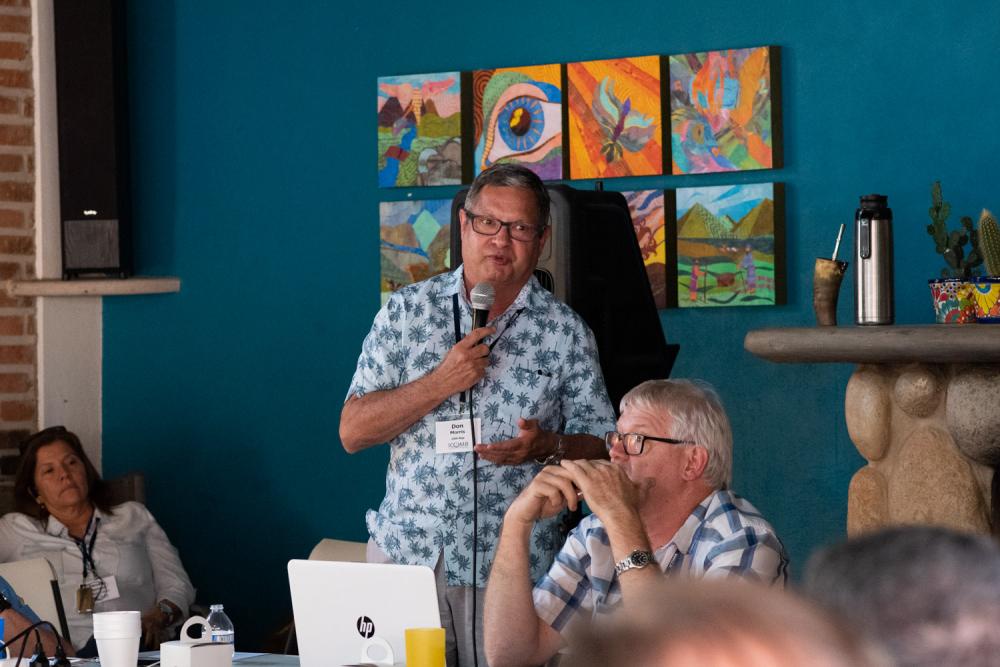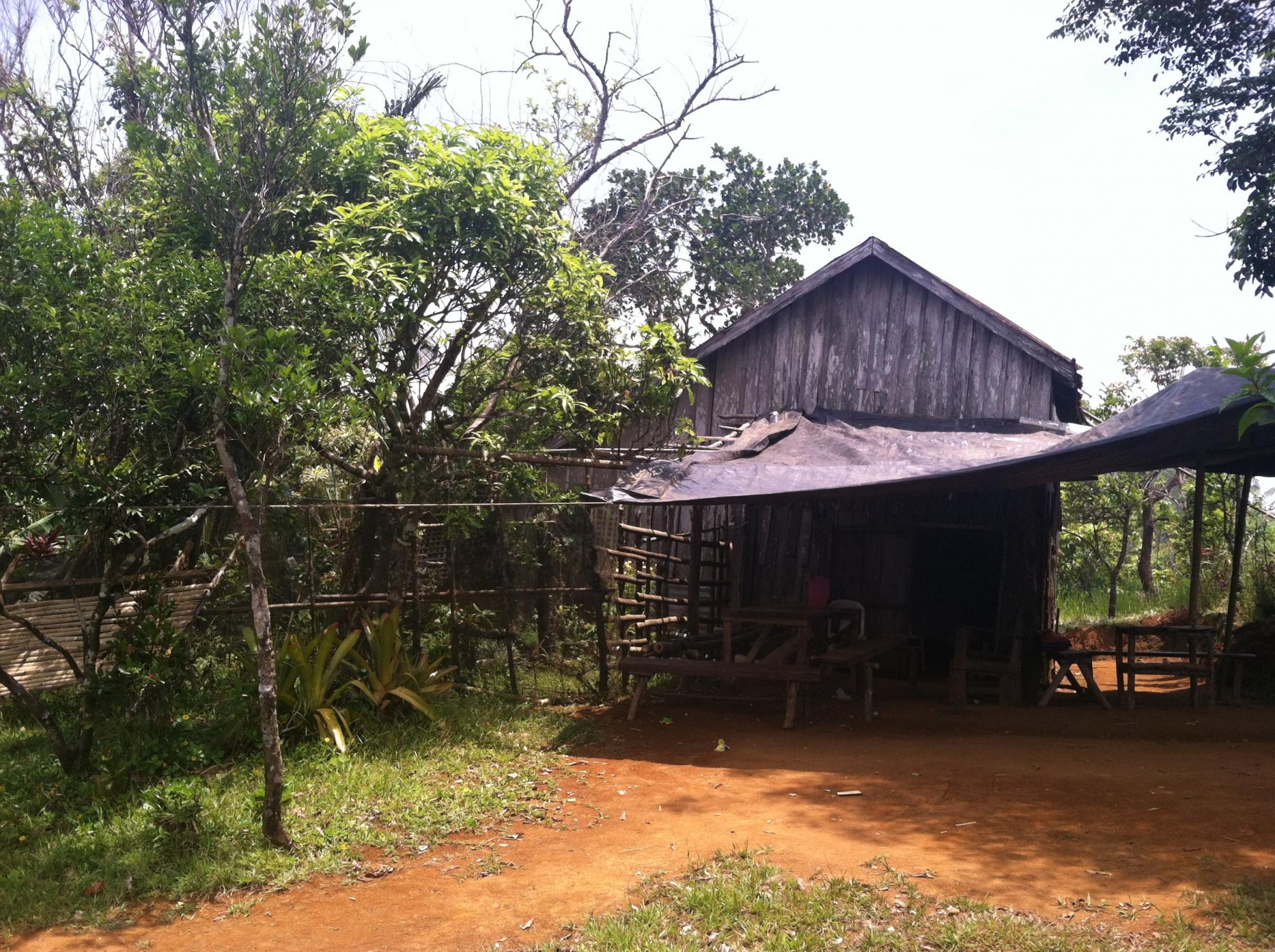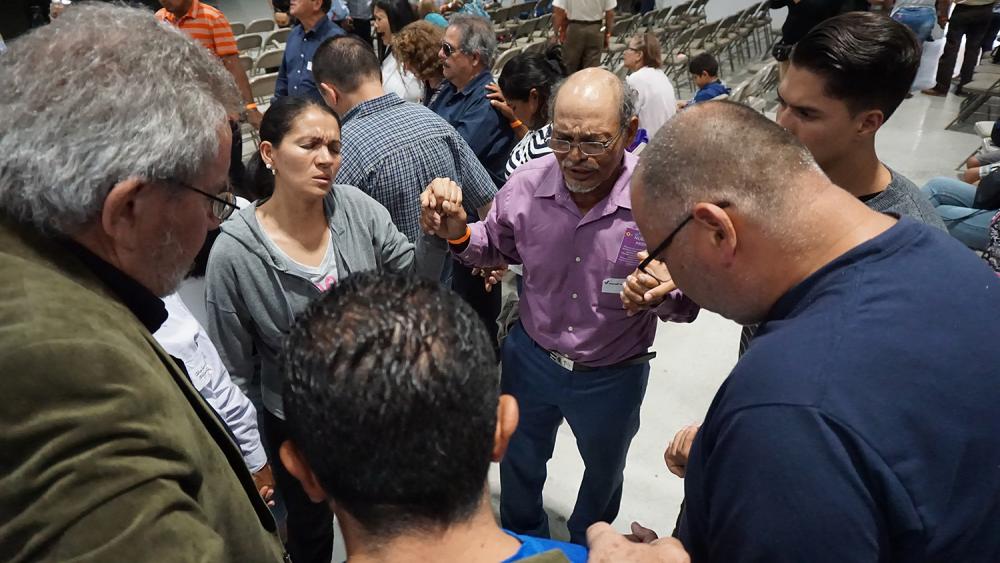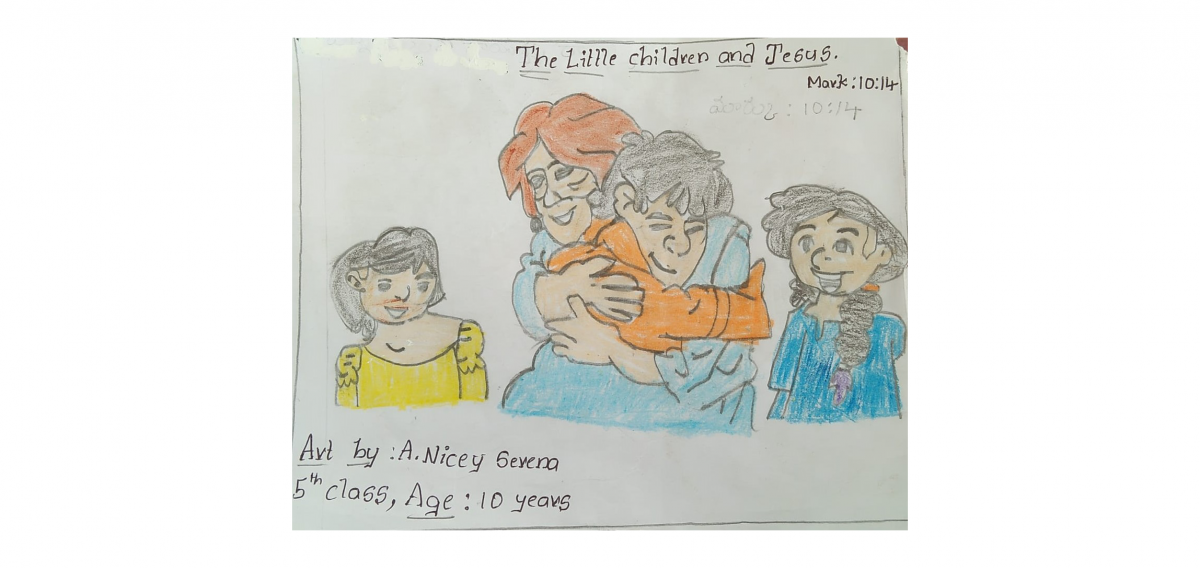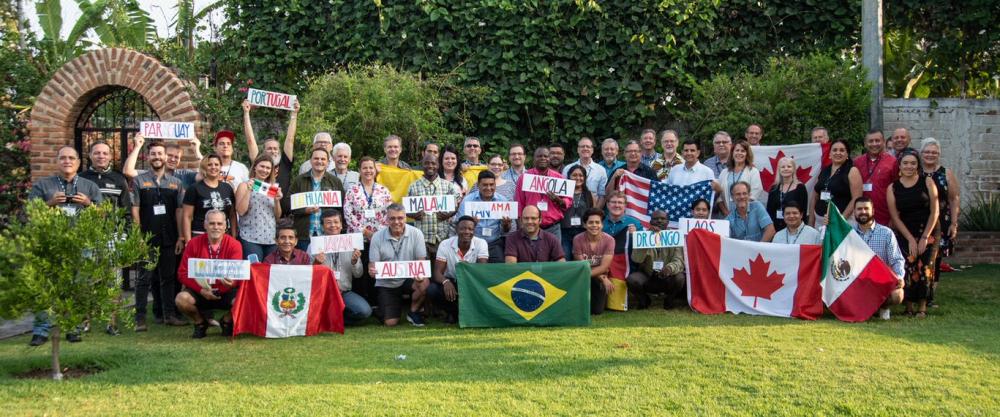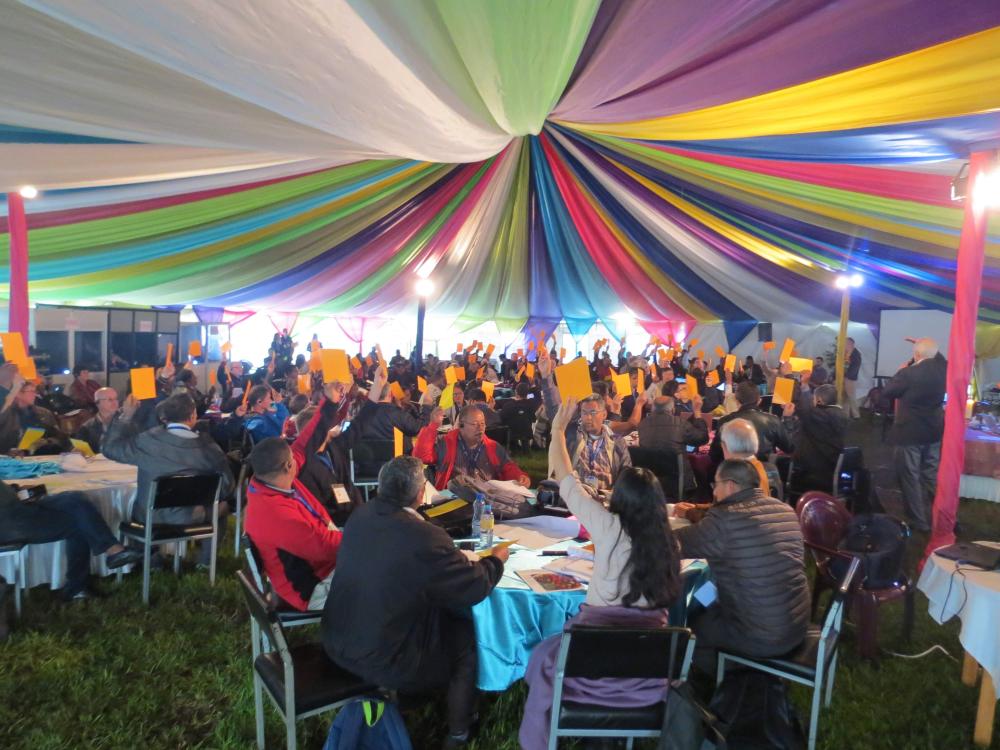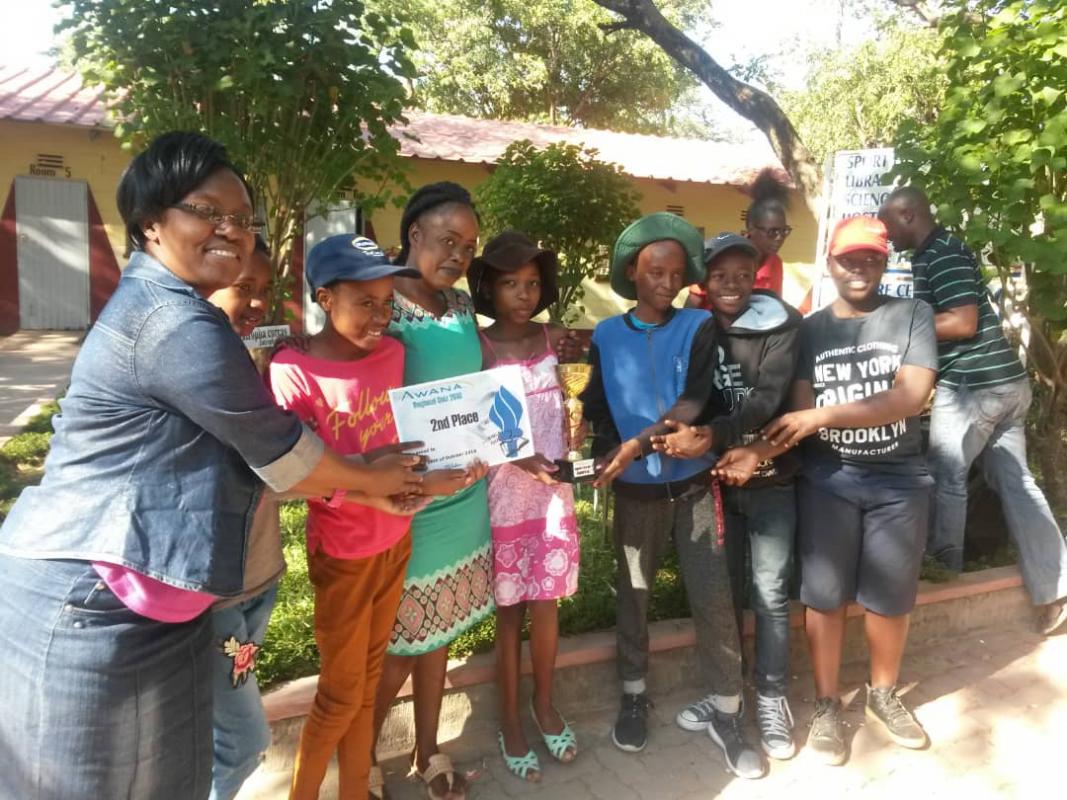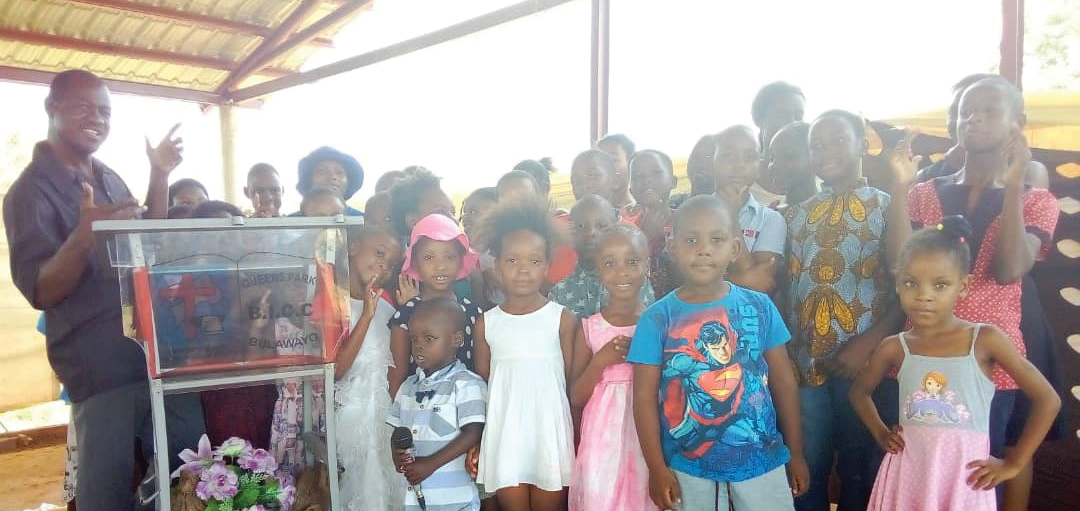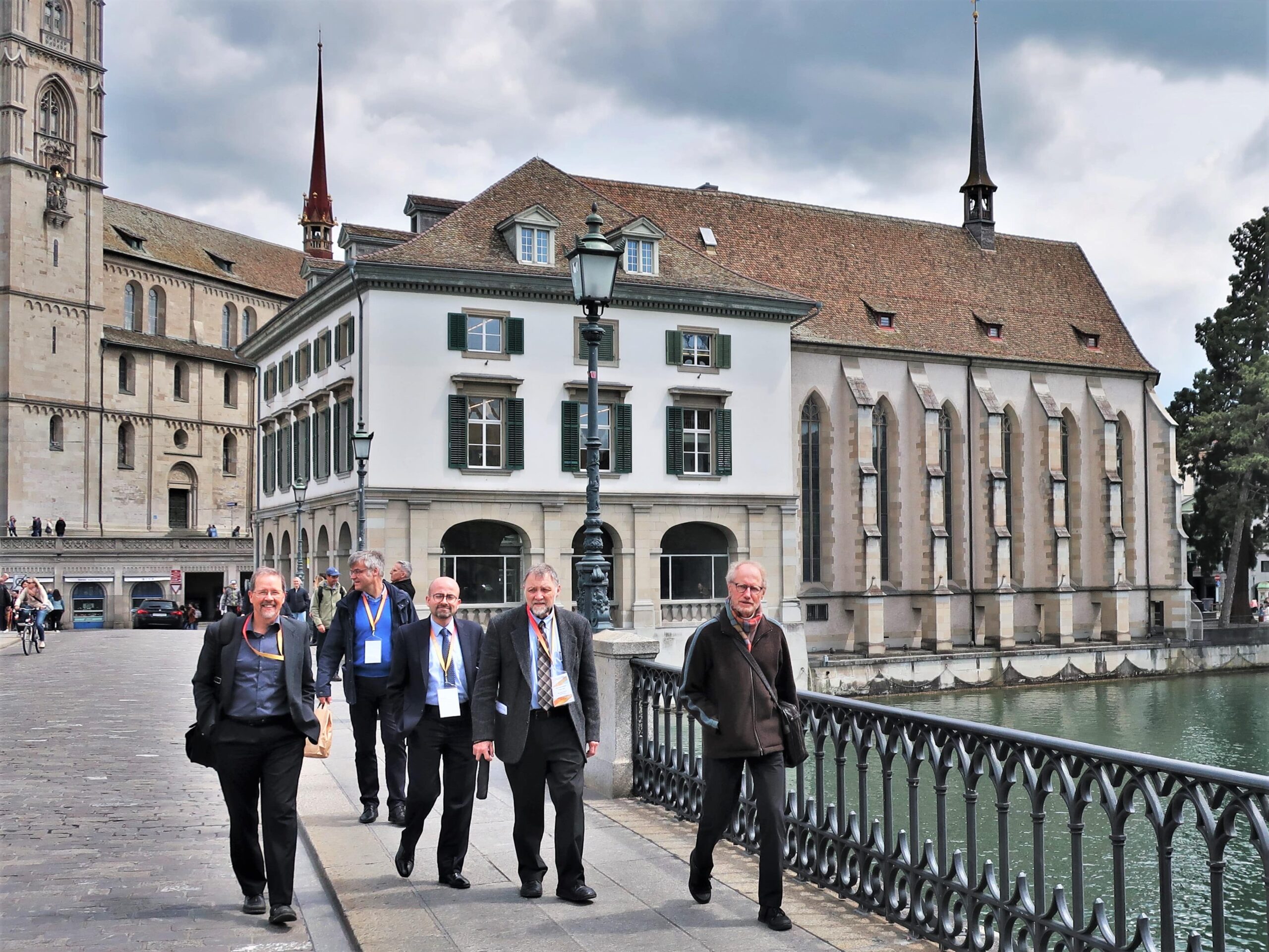-
MWC books: one church’s peace project
“Why would you help us? Who are you Mennonites?” A family from Colombia asked this of their friends at Grantham Mennonite Brethren (MB) Church in St. Catharines, Ont., Canada. With bureaucratic assistance from Mennonite Central Committee and linguistic support from neighbouring Scott Street MB Church, Grantham sponsored this family who fled their home in Colombia
-
MWC books: a global conversation
“Although each congregation has its own history and social and cultural background, it is common to experience the same sorts of conflicts, troubles, and situations,” says Ellul Yongha Bae, a Mennonite church leader and publisher in South Korea. “MWC Communications is very helpful to show that as Mennonite churches, we have raised similar questions and
-
Ministry partner update: ICOMB – July 2019
The International Community of Mennonite Brethren (ICOMB) is made up of 21 national churches in 19 countries with approximately 450,000 members. ICOMB exists to facilitate relationships and ministries to enhance the witness and discipleship of its member national churches – connecting, strengthening and expanding. Summit report Delegates reported on many positive things that are happening
-
Work that is open to the world
Renewal 2027 testimony: Anabaptists today Renewal 2027 is a 10-year series of events organized by Mennonite World Conference’s Faith and Life Commission to commemorate the 500th anniversary of the beginnings of the Anabaptist movement. This series highlights leaders in the movement from history to the present. “Certainly, true peace comes from God Eternal. However, this
-
A gentle peace witness: The Mennonite church in the Philippines
Since 2016, the Philippines has been led by a president who is controversial for his anti-drug campaign. There has been an increase in extra-judicial killings where policemen are said to execute drug pushers and anyone who fights back. There is a massive support for the charismatic president, yet there are also controversies around his character
-
Each Step is a Prayer
Each step is a prayer. Each step is a supplication to the God who knows what it means to wander for months or years on end, searching for a land of promise. Each step is a sacred protest, calling out to God for mercy and justice. Thus millions of prayers were raised, as friends flew
-
Discipling girls and boys
In this issue, we have examples of how members of the Anabaptist Mennonite family are making a place for children in their local churches around the world. We are Iglesia Cristiana Menonita el Perú (Mennonite church of Peru). We are a faith community located in Iquitos, a mid-sized city in the middle of the Peruvian
-
Ministry partner update: ICOMB – June 2019
The International Community of Mennonite Brethren (ICOMB) is made up of 21 national churches in 19 countries with approximately 450,000 members. ICOMB exists to facilitate relationships and ministries to enhance the witness and discipleship of its member national churches – connecting, strengthening and expanding. ICOMB is gathering at the Matthew Training Center outside of Guadalajara,
-
Moving forward together
Have you ever made a decision when you were for the idea and the other person was against it? Or, been on a board when a vote went five in favour and four against? It’s not fun to move ahead that way, is it? Which of us, if we think of relationships rather than about
-
Prayers for children
In this issue, we have examples of how members of the Anabaptist Mennonite family are making a place for children in their local churches around the world. The children are truly well catered for during these BICC Zimbabwe General Conferences. Though the ministry may face insufficient resources, children’s programs and performance during these conferences are
-
Nurturing peace in children
In this issue, we have examples of how members of the Anabaptist Mennonite family are making a place for children in their local churches around the world. The Peace, Integrity and Lifeskills Clubs (PILLS) are values education-based clubs for the Brethren in Christ Church that help learners in 13 pilot junior and high schools with
-
Mennonite and Reformed reconciliation in a global perspective
“Reformed and Anabaptist are branches from the same tree,” said Hanspeter Jecker, a Mennonite theologian from Switzerland. “Anabaptist convictions that once were controversial – such as the voluntary nature of church membership and rejection of capital punishment – are now accepted by many Christian groups. Centuries of opposition have turned to reconciliation.” Five centuries after


